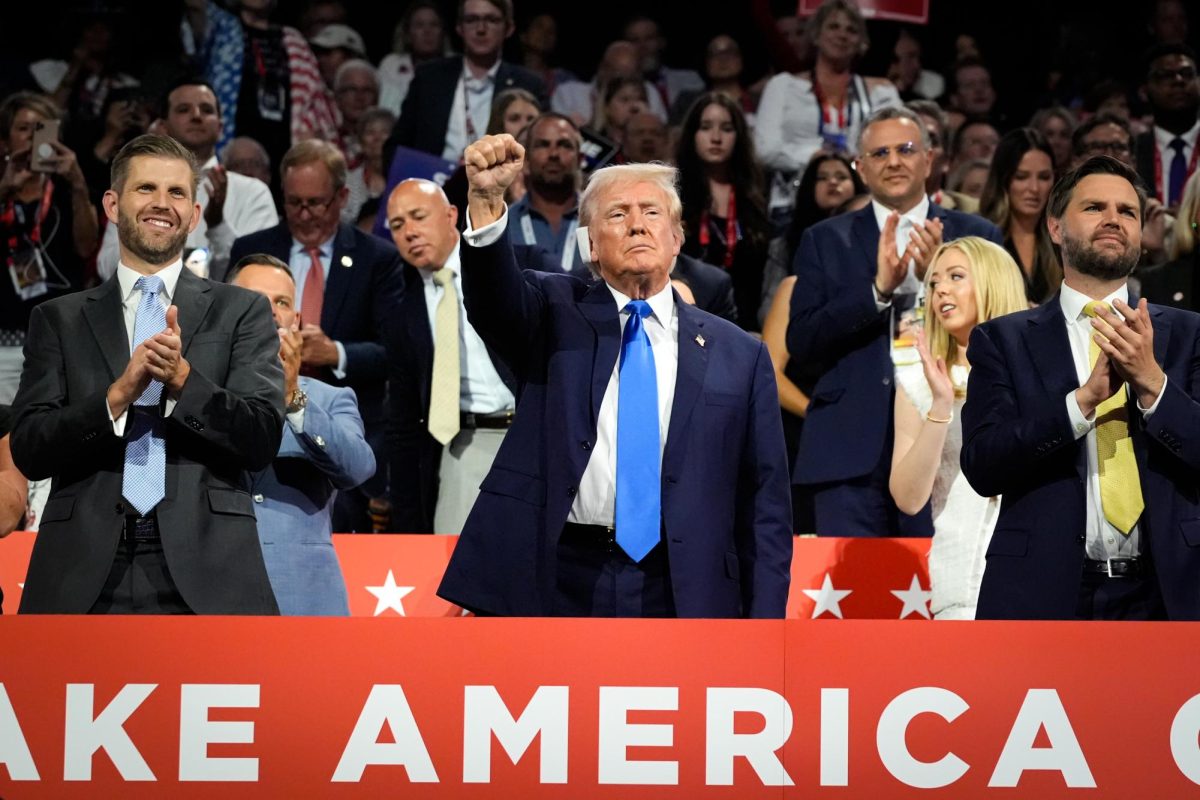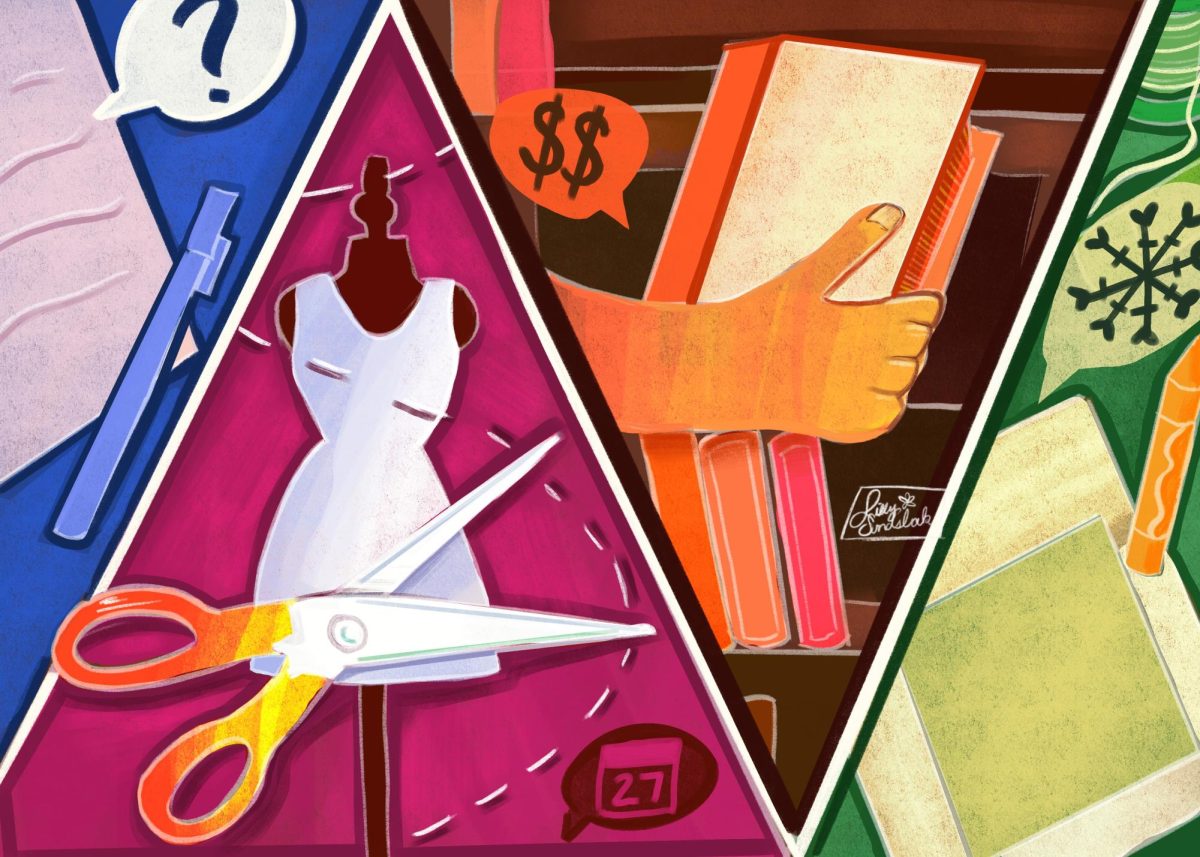A day after President Biden announced his unprecedented decision to drop out of the 2024 presidential race weeks ahead of the Democratic National Convention in Chicago, Columbia students expressed uncertainty but also potential excitement about the historic moment in American history.
Biden made the decision in a letter to the American people on Sunday, June 21, and quickly endorsed Vice President Kamala Harris. Party leaders started to rally around her on Monday, June 22.
Some students expressed fear for the outcome of the upcoming election, which is only four months away. Others said the 81-year-old Biden’s decision was the best choice for the Democratic Party, given concerns about his age and health.
Robert Watkins, associate professor in the Humanities, History and Social Sciences department, said Biden’s decision may build “enthusiasm” among Democrats.
“I think it’s also a really impressive and important, courageous decision on Biden’s part, to see where the country was and to put the country first and set his ego aside and decide not to run,” he said.
Aja Martin, a junior fine arts major, said they never really considered President Biden’s bid at reelection certain.
“Given the tensions within the Democratic Party and Biden’s terrible handling of the genocide of Palenstine, I figured it was going to happen,” Martin said.
Having casually tuned into the news within the past couple of weeks, Elliot Carr was not very surprised.
“I think it was the right decision and he should have done it sooner because now the Democrats are scrambling to put forward a candidate for the ballot,” the senior film and television major said.
Both Carr and Martin’s views are reflective of many young Americans declining support for President Biden’s reelection. In a recent GenForward poll at the University of Chicago, nearly 47% of those ages 18 through 29 either somewhat or strongly disapproved of his current handling as president.
Other students were caught off guard by Biden’s decision.
Yemima Kebede, a senior creative writing major, said her roommate woke her up from a nap to tell her about Biden’s announcement. “I was just shocked and it took me a bit to process. I’m very concerned about where this will go.”
Jenna Davis, president of Student Government Association and a junior fine arts major, said she has been afraid since Donald Trump’s campaign rally in Pennsylvania. The rally turned violent after a gunman shot and wounded the former president. “I was scared, and I still am scared, but I am hopeful that if people vote, we will be okay,” Davis said.
Some students said the 2024 election was reminiscent of the 2016 election when Trump won against Democratic challenger Hillary Clinton.
“I’m starting to feel like 2016 all over again,” Martin said. “Everyone was saying it’s not actually going to happen, this is just a little jokey joke. But it’s not a joke.”
Harris, who has since been endorsed by Illinois Gov. J.B. Pritizer as a potential candidate “sets up a series of really interesting and sharper contrasts between the Democrats and the Republicans,” Watkins said.
Watkins pointed out multiple differences between Harris and Trump that did not exist between Biden and Trump.
“You’ve got generational differences. You’ve got clear differences on women’s rights, and abortion rights,” he said. “Her being a former prosecutor and [Trump] being a convicted felon. There’s all kinds of really interesting, sharp clear contrasts that open up now that that really weren’t there before.”
Majority of students interviewed told the Chronicle that they did not know much about the vice president’s politics but that she was a clear candidate choice for the Democratic Party.
“If she were to run for presidency, that would definitely be historic,” Kebede said, as Harris was the first female vice president of color in American history.
Others shared their skepticisms about Harris as a potential presidential candidate.
“I haven’t heard much from her since she’s been vice president and I can’t really imagine what she’s going to get done as president,” Abigail Halla, a senior art history major, said.
Some shared how they would vote for her against Trump regardless.
“I think she’s the obvious choice. I mean she’s not the ideal candidate, not everything I want, but I am in the headspace ‘as long as it’s not Trump,’” Lawrence Hight-Goggin, a junior environmental and sustainability studies major, said.
Despite the confusion and tension, Davis and other students shared similar sentiments of the importance of voting.
“I think it is important that people do vote and use their right to vote, especially because of Project 2025,” Davis said.
Davis’ concerns for Project 2025 mirror the controversy surrounding the presidential transition project plan.
What is Project 2025?
The project consists of four individual pillars, including a policy guide for the next presidential administration and a “180 Day Playbook,” detailing beginning actions for the administration.
Project 2025 is led by the Heritage Foundation, a prominent conservative think tank, but also involves an advisory board of more than 100 conservative groups.
Within the project, there are several policies that have been previously advocated by Republicans or endorsed by Trump. These policies include increased funding for the wall on the U.S.-Mexico border, reducing federal money for research and investment in renewable energy and proposals to withdraw the abortion pill mifepristone from the market.
What’s next for students?
As August approaches, Watkins said that the DNC will be a crucial moment not just for the city of Chicago, but for America as well.
“We’re not clear on how this whole process for the Democratic nomination is going to play out. So it will still be quite dramatic perhaps,” he said, “As [the DNC] is maybe the moment when it really becomes official.”
Watkins also said college students may play an important role, just as he recalls in Barack Obama’s 2008 presidential campaign. “I knew a lot of students who were going to Indiana, Iowa and Wisconsin to knock on doors and canvas” for Obama, he said.
He said students still have time to act. “I think students around here could play a big role in getting out the vote operation and that could be really valuable and exciting.
Despite the uncertainty in candidate choices as of now, Columbia students still hold onto their ability to act outside of the election.
“It feels like a make-or-break kind of thing,” Carr said, “But no matter the outcome, the fight is still going to continue and we’re still going to continue to stand for what we believe in.”
Copy edited by Trinity Balboa










